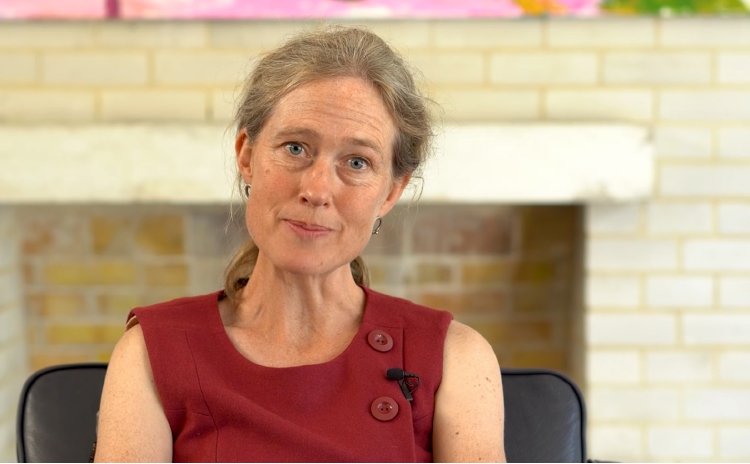Our course - FEMINIST HISTORY, GENDER EQUALITY AND WOMEN’S ACTIVISM - will help you address key contemporary feminist issues surrounding gender, discrimination, sexual violence and demands for gender equality and gender justice. These are crucial to your daily life and to our common future. Lisa Appignanesi, writer, vice-president of the Royal Society of Literature, visiting professor at King's College London and Senior Commissioning editor at EXPeditions, tells you more about this course.
LISA APPIGNANESI - COURSE COORDINATOR.
I am Lisa Appignanesi, I am a writer, I am vice-president of the Royal Society of Literature. I am a visiting professor at King's College London.
I am Senior Commissioning editor at EXPeditions and what that simply means is that I have an opportunity to travel the universe for the people who think best about any given subject.
EXPedition is a rather wonderful and very new international digital publishing project. It’s very exciting because it allows anyone to have access to the best minds in any number of fields that you would normally have to go to university for.
I have always written about women, I’ve written about feminism and I count myself as a feminist.
Being a woman is a very complicated thing because one is at the same time the Other, the second sort of being, against whom all kinds of sexist attacks can be directed, the kind of being who is secondary in terms of the constitution of science or indeed the constitution of the body politic.
KEY POINTS
This course will help you address key contemporary feminist issues surrounding gender, discrimination, sexual violence and demands for gender equality and gender justice. These are crucial to your daily life and to our common future.
The #MeToo movement is one striking example of women’s struggle and growing participation in social and political movements in all parts of the world.
The course will help you question the place of women at work, in the family and in politics. It will help you to understand the reasons for the persistence of women’s secondary condition, and of misogyny, the devaluation of women and violence against women.
The course will teach you about key moments in the history of global feminism. We chart the forces – political, economic and within the family – that were central to the founding and growth of the women’s movement. The thinking of these pioneers, their understanding that “the personal is political” is still with us. It has fed subsequent waves of feminism and been taken into contemporary forms of activism in which young women throughout the globe struggle for structural change.
The course will examine how decolonisation and racial politics have been central to women’s movements and why intersectionality became a crucial concept in the battle for the rights of ALL women – women of colour, LGBTQ, non-binary, trans.
You will learn how feminist economics could change the world for both women and men. You will understand how technology and the algorithms which feed medicine, facial recognition and voting rights have all been male-centred and need change.
What makes this course special is the diversity and quality of our speakers – all contributors to the EXPeditions platform, who share their passion and knowledge in intimate conversations that resonate with the challenges of our daily lives.
They are leading feminist thinkers, historians, sociologists, economists from the very best universities. You will meet Juliet Mitchell from the University of Cambridge, one of the founders of the second wave of the women’s movement. Hannah Dawson teaches the History of Ideas at King’s College London and has edited The Penguin Book of Feminist Writing. Maxine Molyneux from University College London, who has overseen many United Nations programmes for women. Durba Mitra, from Harvard University, who is a scholar of the history of sexuality and epistemology in South Asia and the comparative colonial and postcolonial world. Lucy Delap, from the University of Cambridge, who has written Feminisms: A Global History. Susan Himmelweit is Professor of Economics and the coordinator of the Policy Advisory Group of the Women’s Budget Group. And Judy Wajcman, from the London School of Economics, who is a specialist in gender relations in the field of work and technology.
We hope you will find the course useful for reassessing the critical role of feminism in imagining a radically different future.
LEARNING OBJECTIVES
Our key learning objectives for this course are:
Examine the history of feminism, understand why women’s history matters and how historical, social, political and economic processes shaped gender inequalities.
Survey the different waves of feminism and understand key concepts and terminology, such as gender and intersectionality.
Explore systemic gender bias and learn how technologies replicate gender stereotypes.
Address contemporary feminist issues.
Understand the gendered meaning of family and “work” in women’s history and how it influenced family life, family relationships and women’s ability to organise politically, socially and economically.
Discover women economics and how gender needs to influence macroeconomic models.
Recognise women’s participation in social and political movements.
Identify key contemporary issues surrounding gender, discrimination and sexual violence, including the #MeToo movement.
Our EXPerts
-

Lisa Appignanesi
King’s College London
-
Juliet Mitchell
University of Cambridge
-

Hannah Dawson
King’s College London
-

Maxine Molyneux
University College London
-

Durba Mitra
Harvard University
-

Lucy Delap
University of Cambridge
-
Susan Himmelweit
Open University
-
Judy Wajcman
London School of Economics




